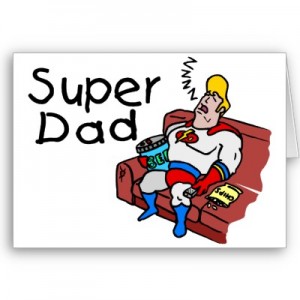 I’m a few days late to this, the latest controversy involving a toddler whose mother has a stripper-name (seriously, Google it: her name is Crystal Shores, which is also the name of some Marriott “club” on the west coast of Florida).
I’m a few days late to this, the latest controversy involving a toddler whose mother has a stripper-name (seriously, Google it: her name is Crystal Shores, which is also the name of some Marriott “club” on the west coast of Florida).
You’ve probably already heard the whole setup. If not, there’s a handy reference video below. At a Rangers game late last week, a foul ball was snagged on the field and then tossed into the expensive seats nearby (making this a one-percenter showdown). Either the ball was intentionally thrown in the direction of a tow-headed toddler, or the toddler—they are all such egotists!—imagined the ball being thrown to him. Either way, he didn’t get the ball—an older man with long arms and (presumably) full bladder control snared it, and didn’t notice his kid-competitor.
The kid, he cried. The man, there with his girlfriend/wife/secretary(?), exalted and cavorted. He and his girl took pictures with their phones, all while the kid was working up his best look of complete devastation and loss.
The television announcer, who should never ever be allowed to talk about anything besides the break on a curveball, immediately pronounced the couple The Worst People in the World for “taunting” this child that they clearly hadn’t even seen. Because I don’t get to use as many sports metaphors here as I would like, let’s just say that if this scenario was a 12 to 6 curveball, the announcer called it high heat. He couldn’t have been more wrong.
The toddler’s parents (Crystal and Kyle Shores!) and the offenders have both done their time in front of the jury of national media arguing that this was all just a misunderstanding.
That is, however, beside the point. Regardless of intention, of taunting or not, there are some good lessons to be learned here. Jotting a few of them now:
1) Baseball announcers should be more quiet. Except for the guys who call my Giants games. They’re great. Really.
2) Toddler bawling-face means nothing to me or any other parent worth their salt. This starts from the earliest days of infancy, when you realize that tiny babies cry because of disappointment, angst, cynicism, or gas. Or all of the above. And neither you, nor they, will ever know the difference. It is no different as they age. My children cry out in terror/anger at least 500 times a day. I am beyond caring, except if some sort of new frequency is reached, something that intimates real, different pain. This kid’s bawl? Pure theater.
3) Someone else’s crying child is should not be this couple’s problem. This is important, and hard to understand, as a parent. But the fact is that parents shouldn’t even feel responsible for their own child’s happiness. Why should strangers? To argue otherwise is to buy into the bizarre concierge-reaction to children that we see all around us: we value these little people, so our impulse is to serve them, to please them, to feed their whims, buff their egos, and shield them from disappointment. DO NOT DO THIS. I have tried. In the end I have only learned that for all the advantages my children have that I did not, for every time I tried to craft a special experience or protect them from a hurtful thought, my children are still just themselves, little bags of rage and love and greed and beauty that will do what they are wont to do, unswayed by outside stimuli. The only thing they really seem to respond to is the sensation of being doted on, and rather than relaxing or feeling enveloped by love when they see that they are being doted on, they turn selfish: little Lohans under the klieg lights of attention. They rant and spit on their stage, they slug photographers and expose their genitals. They wear big sunglasses and smoke cigarettes. You get what I mean: the attention warps them. They turn gnarled and spiteful.
I’m not saying you can’t offer some sympathy for the kid. But that he should get your baseball? Screw that. Leave him disappointed. He’ll be better off for it.


 This post was sponsored by
This post was sponsored by 